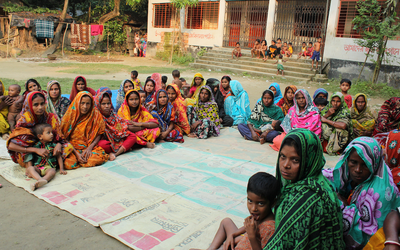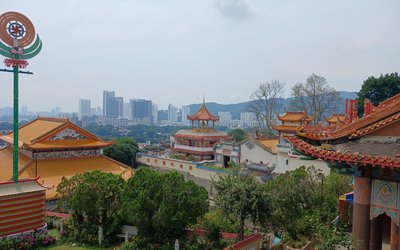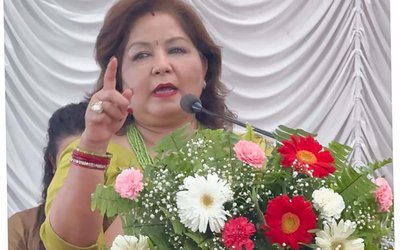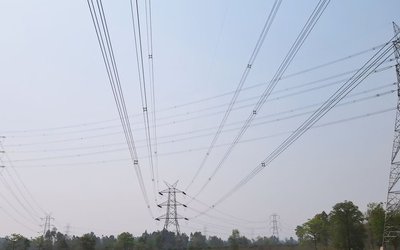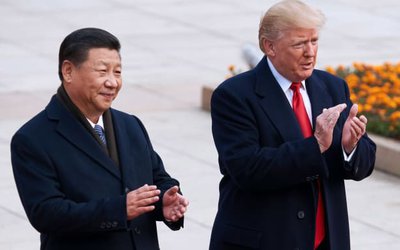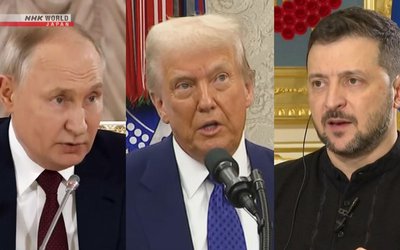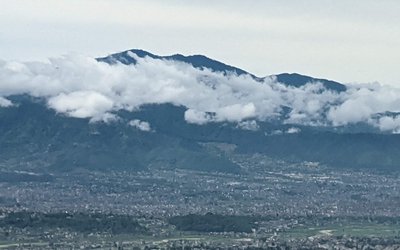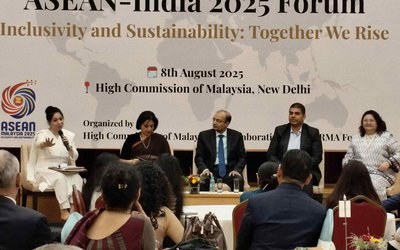Civic education is an education about enlightenment. It is about the perfection of human life by nurturing civic values, knowledge, spirit, skills, attitude, disposition and wisdom. These values are the keys to citizens’ active participation and performance in life-situation, consistent self-determination in decision-making and mitigation of the obstacles to progress. They evoke the internal consciousness inherent in each and every human being and seek to bridge the gap between knowledge and wisdom and free will and order. Consciousness, like a spark of light, reveals life beyond the needs of body and mind and unleashes the spirit of multi-channel conversation of human beings for the realization of their multi-dimensional rights (liberty, power, claim and immunity and livelihood rights to equalize the differences of material circumstances) and performance of corresponding moral duties. Civic education is a praxis—use of critical knowledge to shape reasonable attitude and change the world for better freedom, equality, dignity and peace, create norms that are socially binding and build autonomous national character of citizens. The critique of existing praxis helps to emancipate people from their unjust condition and solves actual problems. The act of praxis cannot be governed by only scientific knowledge claims but normative knowledge and moral conviction. People have ‘common sense’ judgment about everyday practices on the basis of which they participate in local assemblies and organize cooperative action.
Emancipatory Impulse
Freedom resides in the faculty of critical judgment. It emancipates people from ideological blindness, demagogic illusion, fundamentalism and determinism of class, caste, gender, ethnicity and locality. This is the reason there is wisdom in saying, “internal vigilance is the price of liberty.” Reflection and engagement on the historical and philosophical condition of people opens the leaders and intellectuals toward the future, toward freedom and possibilities for reform in “political, economic and cultural industries” as well as oppressive power relations in society. Education divorced from real life experience of people and condition disables the civic competence of citizens to reflect, engage and influence politics, law-making process and economic planning necessary for social transformation. Knowledge emerges through the continuing inquiry of human beings about each other and the world.
Civic education, to be sure, aims to familiarize people, both male and female, about the rule of governance, their rights and duties, civic and constitutional institutions and practices and basic principles of democracy. It is about the real choices they confront, not just during election but in every situation of life. In this sense, civic education fosters a sense of social equality and community, culture of political tolerance to opposing views, builds trusts and improves cooperation among citizens for the promotion of quality of life. Citizens’ self-confidence, however, demands faith in one’s own capacity to do reasonable things. It would be premature to assume that modern science and social science would replace spiritual understanding and faith as the latter provides solution to how to lead good life. It will continue to shape human thought and action in various ways despite the modernity’s appeal for secularism and post-metaphysical thinking aiming to conquer over nature by means of using the power of scientific reason.
According to German Philosopher Immanuel Kant, “Enlightenment is man’s emergence from his self-incurred immaturity. Immaturity is the inability to use one’s own understanding without the guidance of another.” He speaks of three-fold tutelage or immaturity: domestic socialization where children are dependent on the advice of parents and elders every time and follow their judgments in every aspect of life; civil tutelage of law and leaders whereby adults uncritically act behind the veil of ignorance and obey order without questioning the authority; and life-long stage of pious tutelage of religious scripts and priests throughout life. Each of these tutelage fosters, not civic, but conformist political culture. The telos of civic education is to liberate people from their immaturity and tutelage through the promotion of creative and awakened citizen and human being (jagrat nagrik and manushya) enabling them what Juergen Habermas calls to build knowledge constitutive interests: technical, practical and emancipatory. These interests enable them to become the knower of truth about nature, knowledge, history, power, principles and institutions of polity, human rights, social justice and peace.
Enlightened persons can make a distinction between right and wrong and good and bad and exercise rational judgment in private and public life. They can take judicious actions when appropriate. In other words, it enables them to know about their what Karl Marx and F. Engels call “conscious existence,” the existence of human beings in their actual life-process. Human beings are reason producing, defending and taking animals. This is the basis of their autonomous scientific and social-scientific inquiry and mode of acquiring an identity of the self. But reason is always a product of a particular culture and history. Obviously, culture determines human nature and conduct as well as nourishes civic virtues of individuals that underpin social order, social solidarity, justice and nation-building. De-culturation, by contrast, is dehumanizing.
Active Citizenship
Citizen, as private individual and public person as a member of the state, is a free human being who can take initiatives not fatalistically predetermined by past constraints of tradition and arbitrary actions of authorities and leaders. In this sense, social learning means not the passive absorption of data, facts and information or rote-learning of text books written in an entirely different context, but active reflection, inquiry and discovery on the life-context, issues, actors and rules to resolve problematic conditions. Bertrand Russell rightly says, “Education is essentially constructive and requires some positive conception of what constitutes a good life.” Participatory democracy requires “active citizenship” as it brings the doctrines and principles of democracy into actual life of ordinary citizens and leaders, nourishes their open-mindedness and engages them in historical and philosophical traditions of the nation for the rational reconstruction of social, economic and political order without destroying the capacity of society for resilience and reconciliation.
Technocratic consciousness is useful for functional specialization of society. It has instrumental purpose of using technical skills and tools but it does not provide wisdom to decide what is right and what is wrong for this is a question of morality and ethics. Rigid, techno-centric and authoritarian nature of education where there is no scope of reflection about the social relevance depoliticizes the citizens and alters their self-understanding of the working of power considering technocrats and leaders superior to citizens like feudal leadership and alienate them from the social, economic and cultural life-world. Democratic ethos is, therefore, important to develop sense of one’s own efficacy as active citizens and protect the domain of popular sovereignty. A common democratic citizenship can transcend the primordial differences and create a shared condition for judgment concerning values and interests that are suitable for conflict resolution.
Construction of Humanity
Enlightened persons exercise conscious choice in life-context and possess the courage to defy blind faith, superstition and arbitrary practices without establishing their superiority over others. They are free and self-directed neither bound by particular subject nor leader or institution and, therefore, capable of self-determination in public and private life and ready for exercising democratic citizenship. Human beings cannot be reduced to class, caste, gender, ethnicity, age and territorial identities. To do so means to deprive their human potential and use them for the private ambition of elites. This means there is a need to balance their interests in three realms—biological, sociological and cosmological-- considering that they live in plurality of life-world who shares a common nation with the natives, common humanity with other human beings and a common planet with other species. Citizens acquire and sustain their identity by adopting the sanity of traditions. The inversion of this tradition through radical political and social engineering saps metaphysical roots of social and cultural memory of citizens producing a sullen, feckless and “inorganic intellectuals” to use the phrase of Antonio Gramsci. Inorganic intellectuals are disconnected from the national culture, history and life-world of citizens, do not learn from the experience of native people and are incapable of indigenizing universal knowledge to local conditions.
Education based on ideological indoctrination creates ignorant persons. Consent manufacturing and thought-control applied by undemocratic political parties in their party schooling deprives their cadres and voters from understanding both the context of human condition they live and ethical principles as it does not provide an awareness of the real. The production of “false consciousness” makes it easy to instrumentalize small identities against the state and weaken its policies of social integration and system integration. Undemocratic leaders fear that critical civic education contests their arguments and weakens their superior status and, therefore, seek loyal followers who can be manipulated like eager robot. This is the reason, says Friedrich-Ebert, “Democracy requires democrats.”
Conclusion
Civic education is important for a war-torn society for comprehensive reconciliation of various identities torn by various types of conflict and rationalist conception of politics where power is both means to acquire more power and an end to become more powerful without any ethical purpose to represent public interest and accountability. In this context, transmission of civic knowledge to the grassroots can give impetus to those native civic values of giving, charity, healing and safeguarding social peace lying dormant underneath the dialectics of central power, build social ties and engineer democracy from below. It is also important to give people a chance to converse with power elites in equal terms and create a common ground for cooperative action. Many political parties glued solely by materialistic interest for power are pursuing different goals with different means in a pre-democratic political fashion of divide and rule and command and control while post—modernists are disconnecting from legendary bond with the nation. They are opening societal fissures with no intention to glue and solve their problems. Civic education, in this sense, seeks to foster normative consensus over democratic values across the political parties of various hues and repair state-citizenship ties.

Dev Raj Dahal
Dahal is Head
- Constitutional Approach to Nation-Building in Nepal
- Dec 04, 2016
- Journey towards Peace and Participation
- May 01, 2015
- Media’s Role in Nation-Building in Nepal
- Sep 13, 2014
- Social Democratic Prospects
- Jul 26, 2014
- The End of Welfare
- Mar 24, 2014

